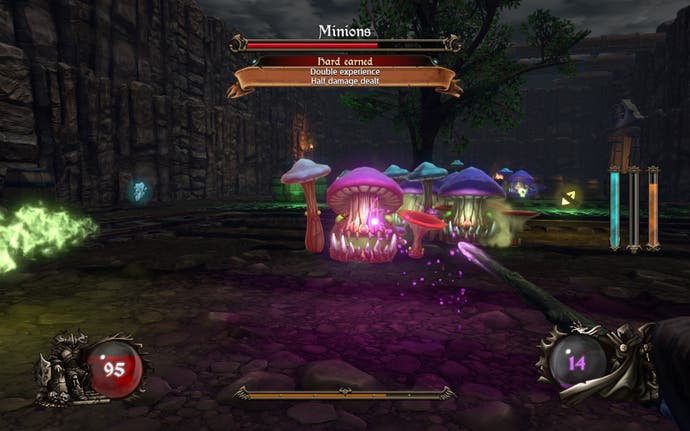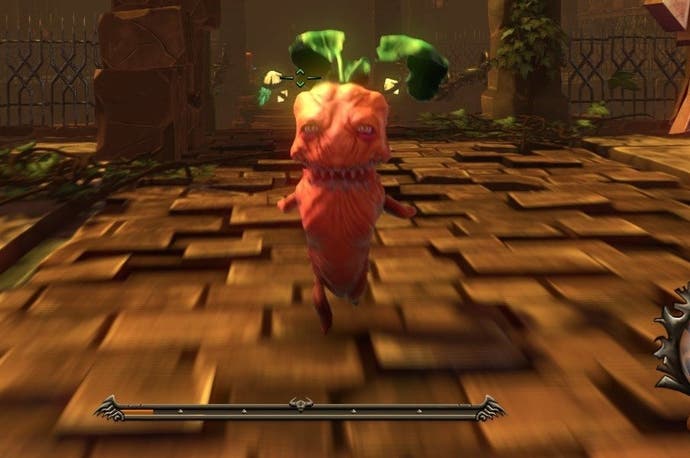Death by carrot: The whirlwind pleasures of Ziggurat
Serious Saruman.
Carrots. Why'd it have to be carrots?
Carrots are what did me in last time, anyway - angry carrots with crooked jaws, running at me, leaf plumes flapping in the dusty breeze. They brought with them wobbling one-eyed flying fish and rumbling, grumbling blobs who threw explosive lumps of crud and then teleport-dashed to the left to avoid return fire.
I appreciate that this comes to you from the honeymoon period with Ziggurat, and like any procedural game, the honeymoon period passes as a crazy, whirlwind thrill. In Ziggurat's case, the thrill draws its energy from the fact that you never know what you're going to see beyond the next door. Wobbling mushrooms? Skeleton archers? Carrots?
You're definitely going to see carrots.
I suspect that the joys of Ziggurat will endure even when it's run out of surprises to spring, however. This is a fantasy Serious Sam with endlessly reconfiguring dungeons. It feels a bit like Tower of Guns, although there's much better feedback from the off. The annoyance with Tower of Guns comes from the weaponry, which starts off seeming a little feeble. Thankfully, the first plasma blast from your wand feels pretty special in Ziggurat. Things come apart, light ripples off the walls and ceiling, and then you round a corner and find a treat like the Magma Rifle waiting for you. It runs out of mana after a minute or two, but that minute or two really stays with you: muddy explosions rocking the ground wherever you choose to point it, the arc and then the muffled thump of destruction.

Everywhere you look in Ziggurat, there's a sense that the designers really understand how to make the speedy nature of the modern roguelite work for them. There are the room feelings, status changes that might render your next batch of foes gigantic, or might hide your health and mana UI as you chip away at them. There's the levelling, a hectic business that offers a choice of perks every few minutes. There's the random secondary weapon you're gifted at the start of every run, and the bright muddle of loot that litters the floor after every arena has been cleared.
My favourite thing, though, is much less central to the mechanics that make Ziggurat so breathlessly charming to battle through. It's the little corridors that connect each room, a creaking door leading to a tiny chamber of respite - a chamber that has, in turn, been through the same procedural milling as the rest of the game. I looked down at one point and I was walking across spars of wood teetering over a pit of spikes. I looked up elsewhere and there were the buckled forms of ancient bookcases yawning above me.
Ziggurat may eventually run out of new things to show you, in other words, but it should always be able to put more familiar things together in a way that delights.

